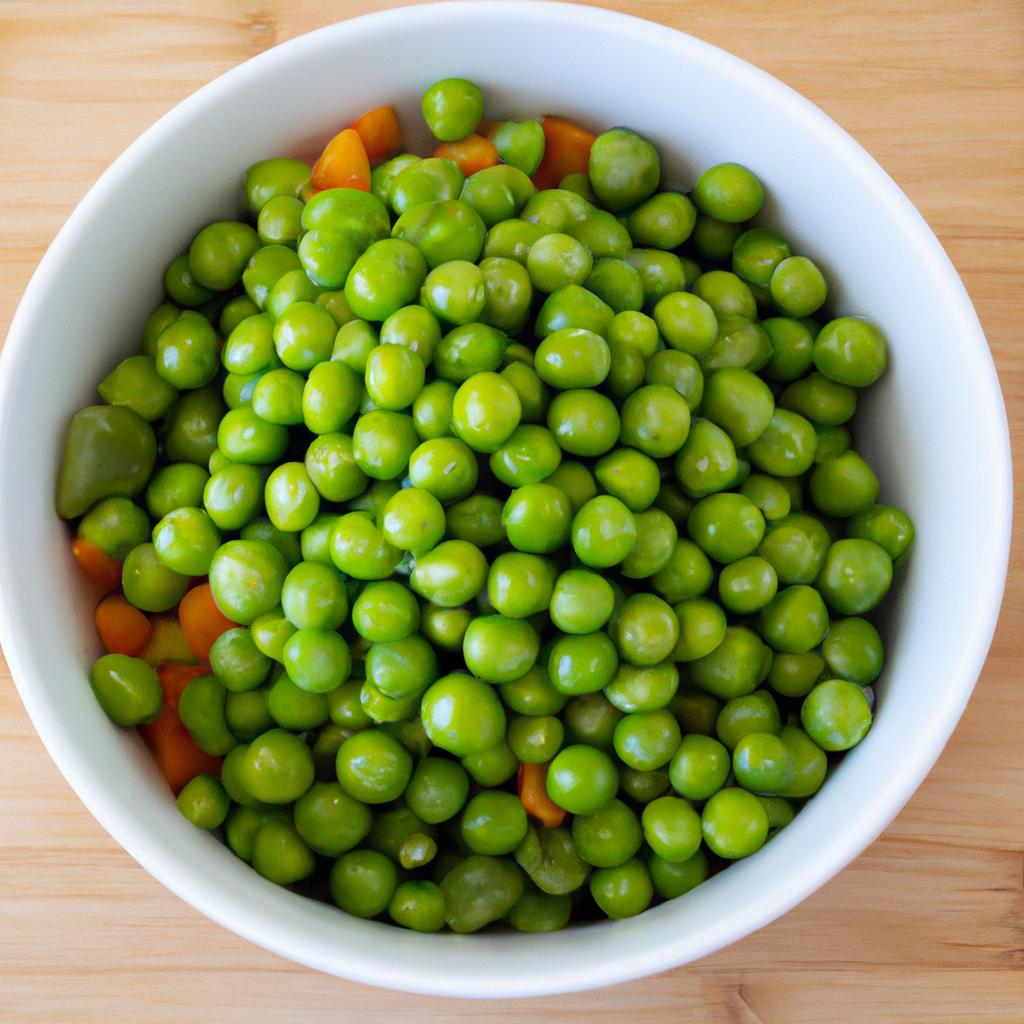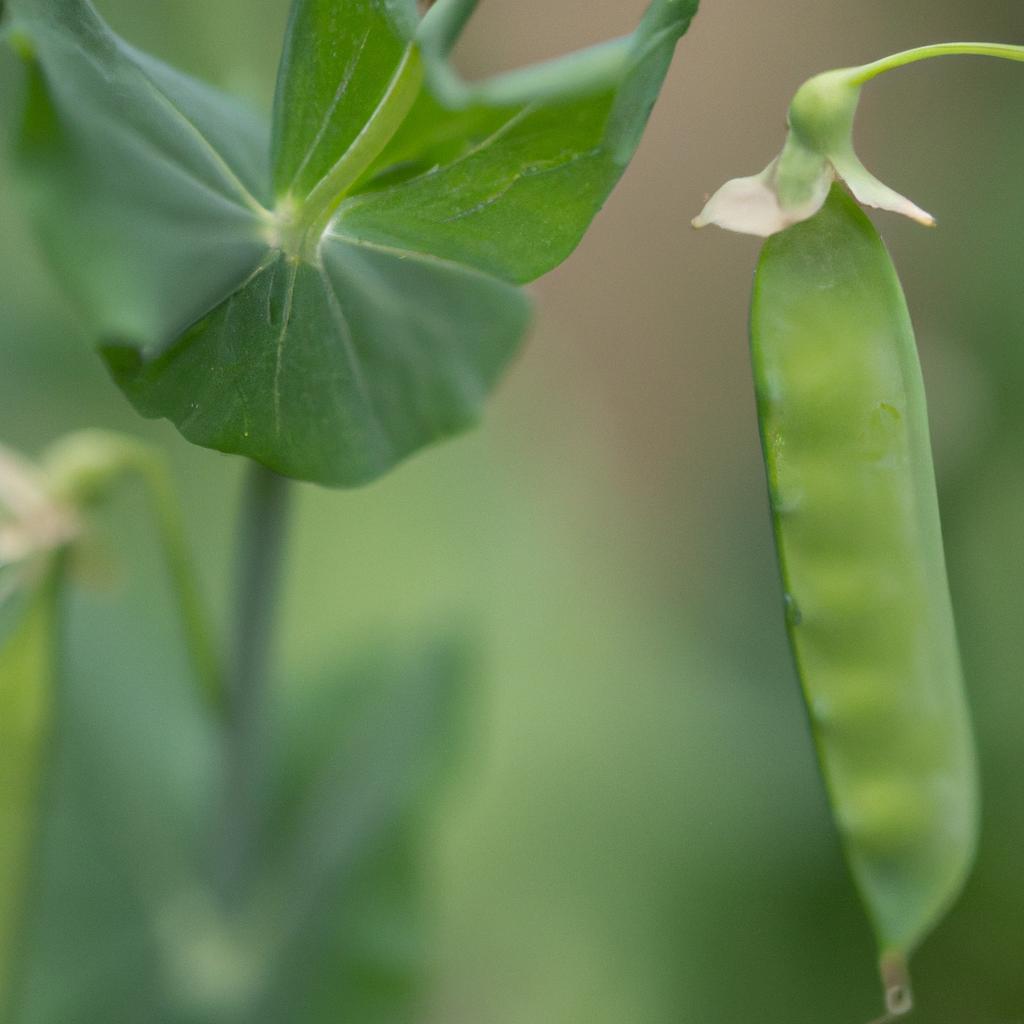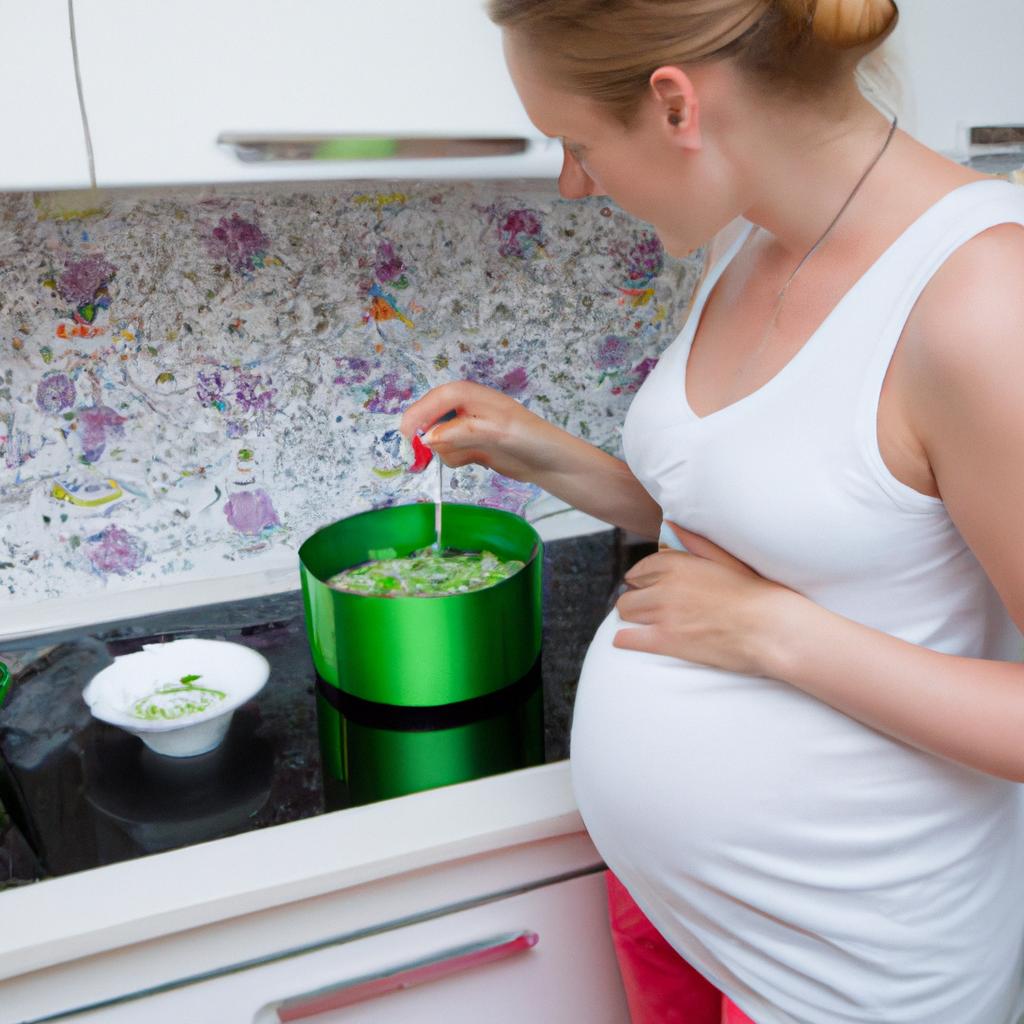Are you expecting a little bundle of joy? Congratulations! Pregnancy is an exciting time filled with love, anticipation, and a whole lot of changes. One of the most important changes you’ll experience during pregnancy is the need for proper nutrition. A healthy and balanced diet is crucial for the development of your baby and your own well-being.
When it comes to pregnancy nutrition, peas may not be the first thing that comes to mind. However, these tiny green legumes are a nutritional powerhouse that can provide numerous benefits during pregnancy. Peas are a rich source of protein, fiber, and vitamins that can support both fetal development and maternal health.
In this comprehensive guide, Peasbenefits‘ll explore the many benefits of peas in pregnancy. From their nutritional value to their role in fetal development and maternal health, we’ll cover all the reasons why you should consider incorporating peas into your pregnancy diet. So, grab a bowl of peas and let’s dive in!
Peas: A Nutritional Powerhouse for Pregnant Women

Nutritional Value of Peas
Peas are a low-calorie vegetable that is packed with essential nutrients. One cup of cooked peas contains approximately 8 grams of protein, which is essential for fetal development and maternal health. Peas are also an excellent source of fiber, providing 9 grams per cup. Fiber is important for maintaining healthy digestion and preventing constipation, a common issue during pregnancy.
Peas are rich in vitamins and minerals that support fetal development, including folate, vitamin C, and vitamin K. Folate is essential for the development of the neural tube, which forms the baby’s brain and spinal cord. Vitamin C is important for the growth and repair of tissues, while vitamin K is necessary for healthy blood clotting.
Peas as a Source of Protein, Fiber, and Vitamins
Protein is essential for fetal growth and development, as well as maternal health. Peas are an excellent source of plant-based protein, making them a great addition to a vegetarian or vegan pregnancy diet. The protein in peas is also easily digestible, making it a good option for pregnant women who experience digestive issues.
Fiber is important for maintaining healthy digestion and preventing constipation, a common issue during pregnancy. Peas are a rich source of both soluble and insoluble fiber, which can help regulate bowel movements and promote healthy digestion.
Peas are also rich in vitamins and minerals that support fetal development and maternal health. Folate is essential for the development of the neural tube, which forms the baby’s brain and spinal cord. Vitamin C is important for the growth and repair of tissues, while vitamin K is necessary for healthy blood clotting.
Benefits of Consuming Peas During Pregnancy
Consuming peas during pregnancy can provide numerous benefits for both the mother and the baby. Peas are a great source of protein, fiber, and vitamins that are essential for fetal growth and development. Peas can also help regulate blood sugar levels, which is important for preventing gestational diabetes.
Furthermore, peas can help prevent constipation, a common issue during pregnancy. Additionally, peas are low in calories and fat, making them a great option for pregnant women who are watching their weight.
Overall, peas are a nutritional powerhouse that can provide numerous benefits during pregnancy. By incorporating peas into your pregnancy diet, you can help support fetal growth and development while promoting your own health and well-being.
Peas and Fetal Development

During pregnancy, the growth and development of the fetus are of utmost importance. Proper nutrition can significantly impact fetal development, and peas can play a crucial role in this process. Here’s how:
Role of Peas in Fetal Development
Peas are a rich source of folic acid, which is essential for fetal growth and development. Folic acid is necessary for the formation of the neural tube, which is the structure that eventually becomes the baby’s brain and spinal cord. Adequate intake of folic acid can reduce the risk of neural tube defects, which can cause serious health problems for the baby.
In addition to folic acid, peas also contain other essential vitamins and minerals such as iron, calcium, and vitamin C. These nutrients are necessary for the growth and development of bones, muscles, and organs in the fetus.
How Peas Contribute to the Growth and Development of the Fetus
Peas are an excellent source of protein, which is necessary for the growth and repair of tissues in the body, including the fetus. Protein is essential for the development of the baby’s muscles, bones, and organs.
Peas also contain fiber, which can help regulate digestion and prevent constipation during pregnancy. Constipation is a common problem during pregnancy, and it can cause discomfort and other health issues. By regulating digestion, peas can help ensure that the baby receives the necessary nutrients for proper growth and development.
Importance of Consuming Peas During Different Stages of Pregnancy
Consuming peas throughout pregnancy can provide numerous benefits for both the mother and the baby. However, it’s especially important to consume peas during the early stages of pregnancy when the neural tube is forming. Adequate intake of folic acid during this time can significantly reduce the risk of neural tube defects.
Overall, consuming peas during pregnancy can support the growth and development of the fetus, providing essential nutrients that are necessary for a healthy pregnancy.
Peas and Maternal Health

During pregnancy, taking care of your own health is just as important as taking care of your growing baby. Good nutrition is key to maintaining your health and well-being. Peas can provide a wealth of benefits for maternal health during pregnancy.
Benefits of Peas for Maternal Health
Peas are a rich source of nutrients that can help prevent and manage pregnancy-related health issues. For example, the high fiber content in peas can aid in digestion and prevent constipation, a common issue during pregnancy. Peas also contain high levels of iron, which can help prevent anemia, a condition that affects many pregnant women.
In addition to these benefits, peas are also a great source of energy during pregnancy. The natural sugars in peas can provide a quick burst of energy that can help combat fatigue and keep you going throughout the day.
How Peas Can Help Prevent and Manage Pregnancy-Related Health Issues
Peas can be particularly beneficial for preventing and managing gestational diabetes. This condition affects up to 10% of pregnant women and can lead to complications during pregnancy and birth. Peas have a low glycemic index, which means they can help regulate blood sugar levels and prevent spikes that can contribute to gestational diabetes.
Peas can also help prevent preeclampsia, a serious condition that can lead to high blood pressure and organ damage. The high levels of potassium in peas can help regulate blood pressure and reduce the risk of developing preeclampsia.
Incorporating peas into your pregnancy diet can also help boost your immune system and reduce the risk of infection. The high levels of vitamin C in peas can help strengthen your immune system, while the antioxidants in peas can help protect against cell damage.
Peas as a Natural Source of Energy During Pregnancy
Pregnancy can be exhausting, and many women struggle with fatigue and low energy levels. Peas can provide a natural source of energy that can help combat these symptoms. The carbohydrates in peas are broken down slowly, providing a steady stream of energy throughout the day. Plus, the high levels of B vitamins in peas can help support healthy brain function and reduce stress levels.
Overall, incorporating peas into your pregnancy diet can provide a wide range of benefits for maternal health. From preventing and managing pregnancy-related health issues to providing a natural source of energy, peas are an excellent addition to any healthy pregnancy diet.
How to Incorporate Peas into Your Pregnancy Diet
Congratulations! You’ve decided to incorporate peas into your pregnancy diet. But how do you do it? Luckily, there are many ways to include peas in your meals. Here are some tips to help you get started:
Tips for Including Peas in Your Meals
- Add peas to your salads: Peas can make a great addition to any salad. Simply toss in a handful of fresh or frozen peas for an extra boost of nutrition.
- Make a pea dip: Whip up a delicious and healthy dip using peas as the main ingredient. Simply blend cooked peas with some olive oil, lemon juice, and your favorite seasonings.
- Mix peas into your mashed potatoes: Adding peas to your mashed potatoes can make for a nutritious and flavorful side dish.
- Use peas as a pizza topping: Sprinkle some peas over your favorite pizza for a tasty and healthy twist.
Creative Recipes for Incorporating Peas into Your Diet
- Pea soup: Whip up a warm and comforting bowl of pea soup using fresh or frozen peas, vegetable stock, and your favorite seasonings.
- Pea and mint risotto: Combine peas and fresh mint with Arborio rice, vegetable stock, and Parmesan cheese for a delicious and filling meal.
- Pea and quinoa salad: Toss cooked quinoa with fresh or frozen peas, chopped vegetables, and a simple vinaigrette for a nutritious and satisfying salad.
Precautions to Take When Consuming Peas During Pregnancy
While peas are generally safe to consume during pregnancy, there are a few precautions to keep in mind. Be sure to properly wash and cook your peas to reduce the risk of foodborne illness. Additionally, if you have a history of food allergies, it’s best to speak with your doctor before consuming peas or any other new foods during pregnancy.
With these tips in mind, you can easily incorporate peas into your pregnancy diet and enjoy all the benefits they have to offer.
Conclusion
In conclusion, peas are an excellent addition to any pregnancy diet. They are a nutritional powerhouse that can provide numerous benefits for both fetal development and maternal health. Peas are rich in protein, fiber, and vitamins that can support healthy pregnancy outcomes.
By incorporating peas into your meals, you can ensure that you are getting the nutrients your body needs during this critical time. There are many creative recipes that you can try to make peas a delicious and enjoyable part of your diet.
At peasbenefits.com, we are committed to providing you with the latest information on nutrition and health. We hope this guide has been informative and helpful in your pregnancy journey. Remember, a healthy and balanced diet is crucial for the well-being of both you and your baby. So, start adding some peas to your plate and enjoy the benefits they have to offer!


